HUAWEI nova 8 Review — The Looker With The Performance?
-
Appearance - 8.4/10
8.4/10
-
Efficiency - 8/10
8/10
-
Features - 7.8/10
7.8/10
-
Materials - 7.9/10
7.9/10
-
Performance - 7.5/10
7.5/10
-
Portability - 8/10
8/10
-
User Experience - 7.3/10
7.3/10
-
Value - 7/10
7/10
Summary
Could definitely do with some fine tuning to improve on the experience offered.
Overall
7.7/10Pros
+ Design stands out from the typical smartphone build in recent times
+ Battery efficiency isn’t bad
+ Enjoyable OLED display with smooth 90Hz refresh rate
+ Decent camera results under good conditions
Cons
– Lacks 3.5mm headphone jack
– Would’ve been awesome with a bigger battery capacity
– Bloatware
– Super Macro offers mixed results
Previously we looked at the HUAWEI nova 8i and now we turn our attention from the latest mid-range offering from the company in this HUAWEI nova 8 review. Does it offer anything special? Let’s get started.
Unboxing
The packaging is pretty standard and you can expect to find the following items inside:
- HUAWEI nova 8
- Charging brick
- Type-C cable
- Documentation
- Soft case
- SIM ejector
Appearance
Looking at the front, it sports a 6.57-inch OLED display which comes with 90Hz refresh rate. We can see here that it also has curvature towards the end which gives it a premium finish. Aside from that, there’s the single punch-hole camera centered at the top of the screen.
On the right side is where you’ll find its volume rockers as well as the power button, which is pretty much the standard stuff. As for the opposite left, it’s completely naked.
Down below. you’ll be able to see its microphone hole, USB-C port, and speaker grille.
Switching to the top, you can see the secondary speaker grille. Just below it is the phone’s NFC point, which is accompanied by the SIM tray.
Flipping the device to the back, you can see a nice iridescent design. There’s the standard nova branding on the bottom part and finally, the camera setup on the top-left corner.
HUAWEI nova 8 Specifications
| CPU | Kirin 820E Hexa-core (3 x 2.2GHz Cortex-A76 & 3 x 1.84GHz Cortex-A55) 7nm |
| GPU | Mali-G57 |
| Memory | 8GB |
| Storage | 128GB |
| Display | 6.57-inch OLED FHD+ (1080×2340), 90Hz refresh rate, HDR+ |
| Rear Camera | 64MP f/1.9 main camera 8MP f/2.4 ultra-wide 2MP f/2.4 depth sensor 2MP f/2.4 macro Night Mode, AI, HDR, Portrait mode, Beautify, Pro Mode, Panorama |
| Selfie camera | 32MP f/2.0 Portrait mode, HDR, AI, Night Mode, Panorama |
| Connectivity | LTE Band 1/2/3/4/5/6/7/8/9/18/19/26/28/34/38/39/40/41 Dual SIM Wi-Fi 802.11 a/b/g/n/ac (2.4GHz & 5GHz) Bluetooth 5.0 USB Type-C NFC |
| Battery | 3800mAh 66W HUAWEI SuperCharge |
| Dimensions | 160.12 x 74.1 x 7.64mm |
| Weight | 169g |
| Ingress protection | N/A |
Performance
Comparing with the nova 8i, we can see an improvement on the device with its Kirin 820E chipset, almost doubling the score on Antutu V9 when compared to the former.
While we see that the single-core score is at the level that is expected of it, its multi-core result did reasonably well here compared to other mid-range devices that we’ve recently tested out. It’s shaping up to be a pretty decent device.
The phone impresses again in 3DMark’s tests, where it manages to outscore other devices of its price range. We’ve put two flagships to show how much of a difference there is between a flagship device.
The same can’t be said over at PCMark’s Work 3.0 test however as it is in the lower end of the ranking. Still, not a bad score though.
As you can see here, the nova 8 managed to last 10 hours and 5 minutes in the battery test. While you might think that it’s not a good score, you need to take into account that it has a smaller battery capacity compared to the rest. It is also lower than the nova 8i, likely because of the higher 90Hz refresh rate that it offers.
In terms of everyday usage, I find that the device could last me a day before I need to look for the charger. I think it’s still okay, pointing back to the smaller battery size again here. As for the charger, it doesn’t take long as it comes with a 66W fast charger.
User Experience
Considering how the battery isn’t the biggest around, the device is pretty light on the hands. Adding the curved display to that, it does feel like a premium device. The screen supports a 90Hz refresh rate, which is a standard that I’d want in a phone. Talking about the screen, the OLED panel is vibrant and I did enjoy my media consumption with it.
In terms of audio, the dual speakers works fine as they are loud enough with decent audio quality for me. One thing that I would’ve liked for the phone to offer is a 3.5mm headphone jack however. It’s always good to have options.
The oval camera cutout makes the device look different from others in recent time, which is a good thing. One thing that I didn’t like about the back is its glossy finish. Sure, it looks good on the eyes but if you have sweaty hands like mine, you’ll definitely have fingerprint stains stuck to it. You’d probably be better off putting a case on it.
 The UI is the same as the one on the nova 8i, which is EMUI 11 based on Android 11. Though it looks decent and easy to maneuver around, I just find it annoying that there’s bloatware on-the-get-go. It’s definitely not something that you’d want in a device of its price tag.
The UI is the same as the one on the nova 8i, which is EMUI 11 based on Android 11. Though it looks decent and easy to maneuver around, I just find it annoying that there’s bloatware on-the-get-go. It’s definitely not something that you’d want in a device of its price tag.
As for the camera UI, it’s a similar experience where everything’s easy to navigate. If you don’t like the preset modes, you can customize it to your liking, which is a nice touch.
Under good lighting, the cameras performs quite decently. Using the Super Macro mode, it produced mixed results for me. Sometimes, the camera just doesn’t want to focus on where I want it to be.
For its Night mode, as you can see from the samples above, it makes the clouds look more grainy. It isn’t bad, but personally I prefer to snap normally for a more natural look. Another thing to point out in the mode, it takes a few seconds to snap when you’re in the mode so be sure to keep your hands steady for better shots.
Check out the full-sized images by heading to the link right here.
HUAWEI nova 8 Verdict
While I did enjoy using the device, especially for the design and display, I feel that HUAWEI could’ve done better. Though the battery efficiency is actually good, I would’ve loved for it to come with a larger battery capacity to make it more of an attractive offering.
If you don’t mind paying RM1,899 and prefer to get something different, it’s something to consider.
We would like to thank HUAWEI Malaysia for providing the HUAWEI nova 8 that was used in this review.







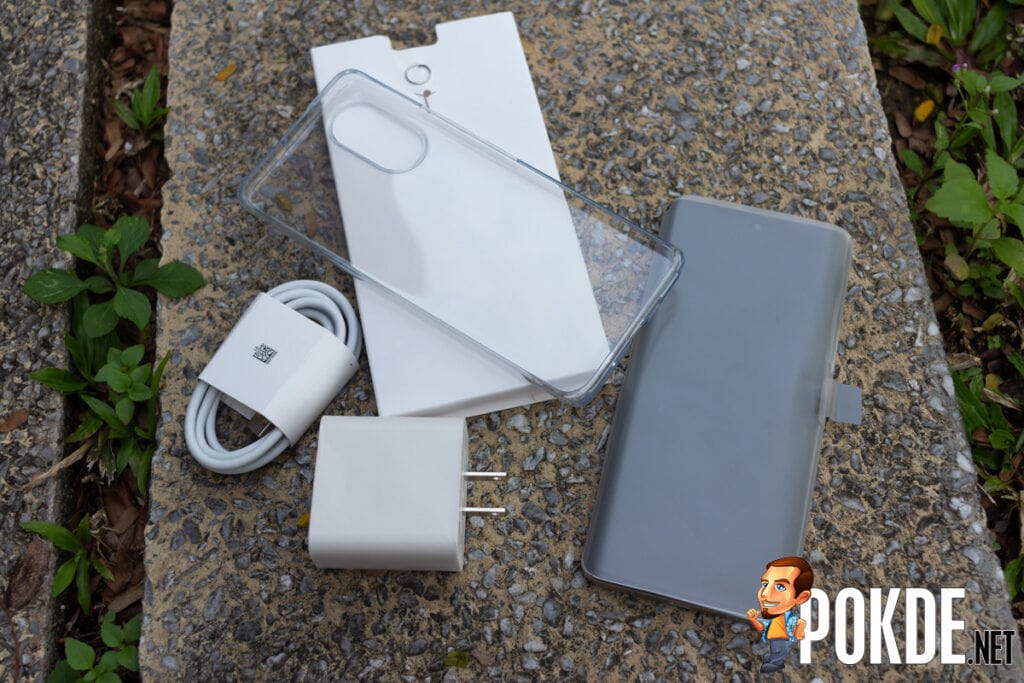









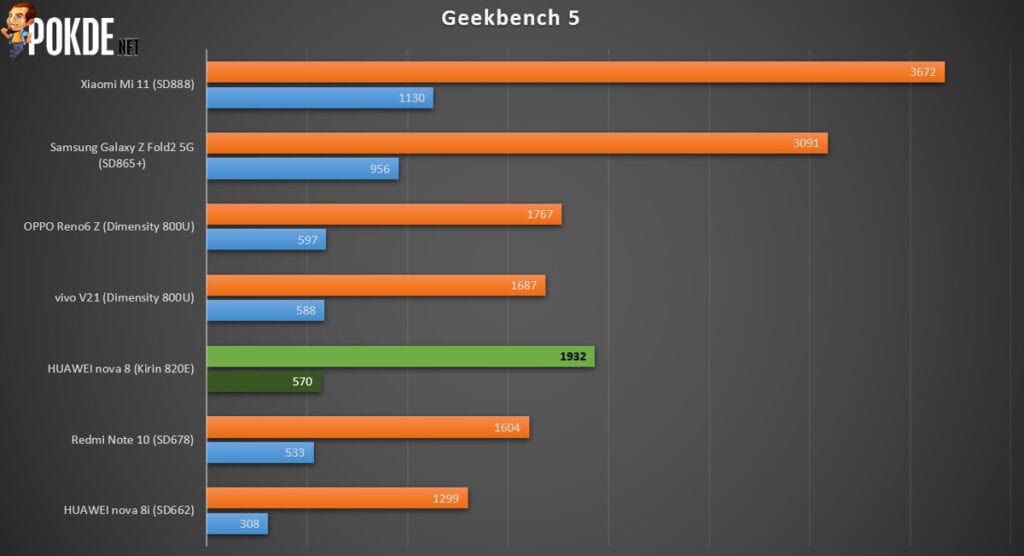
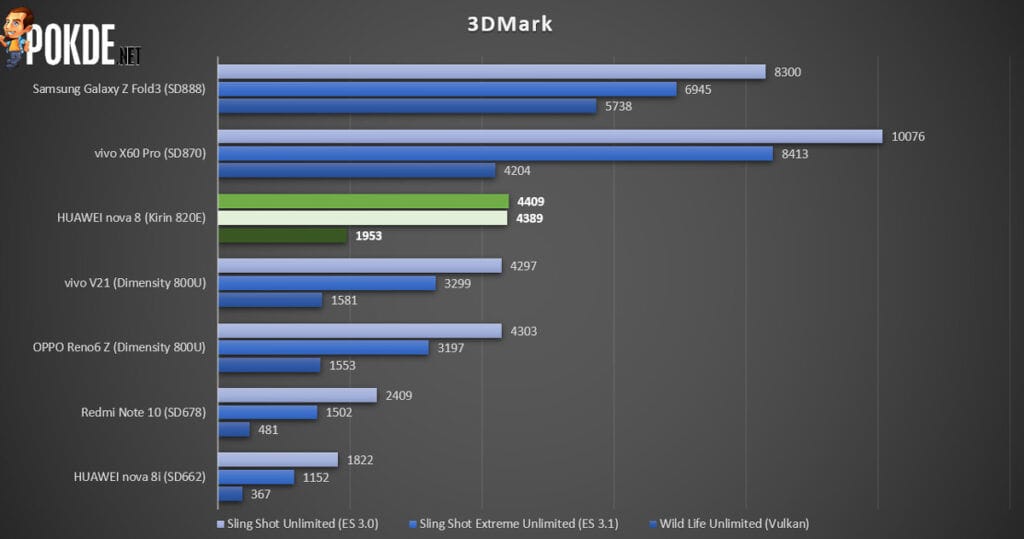
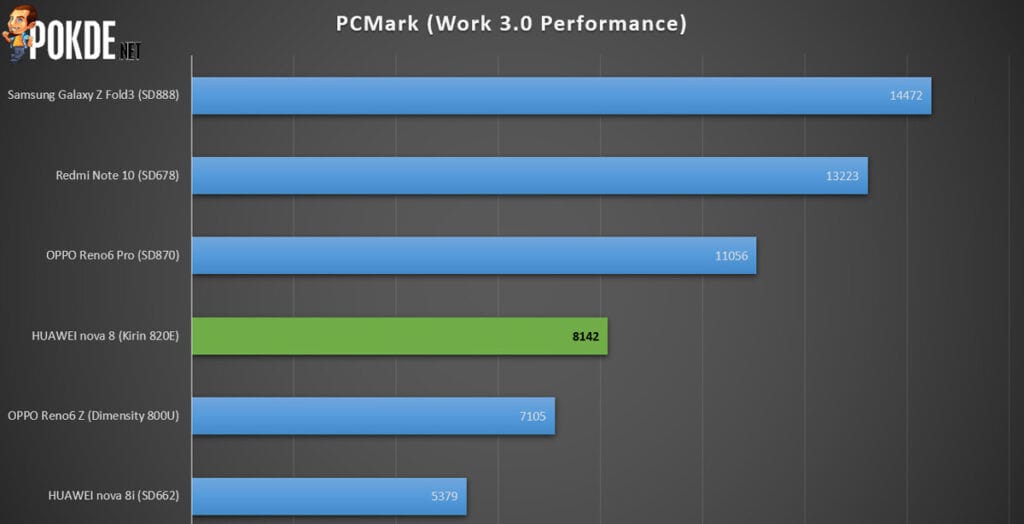
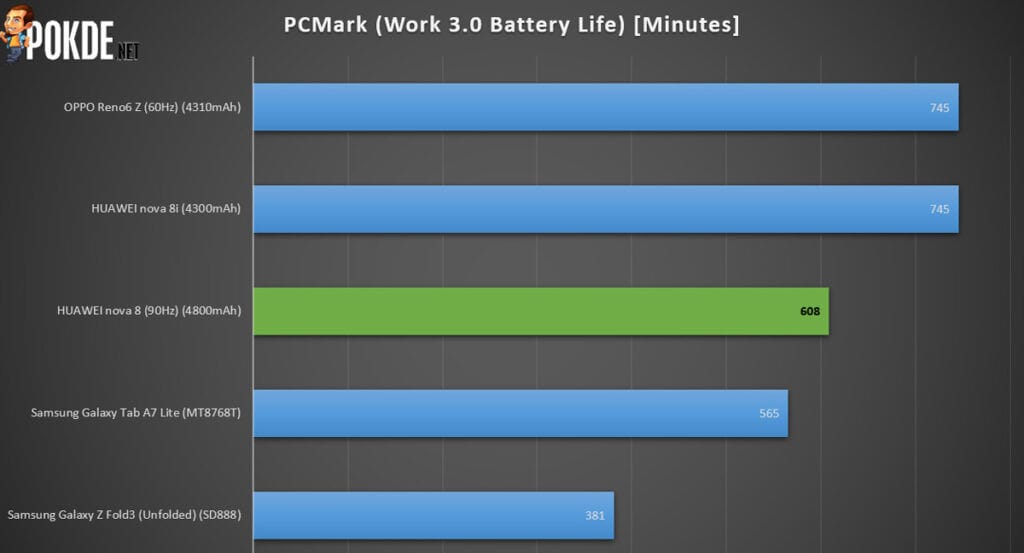

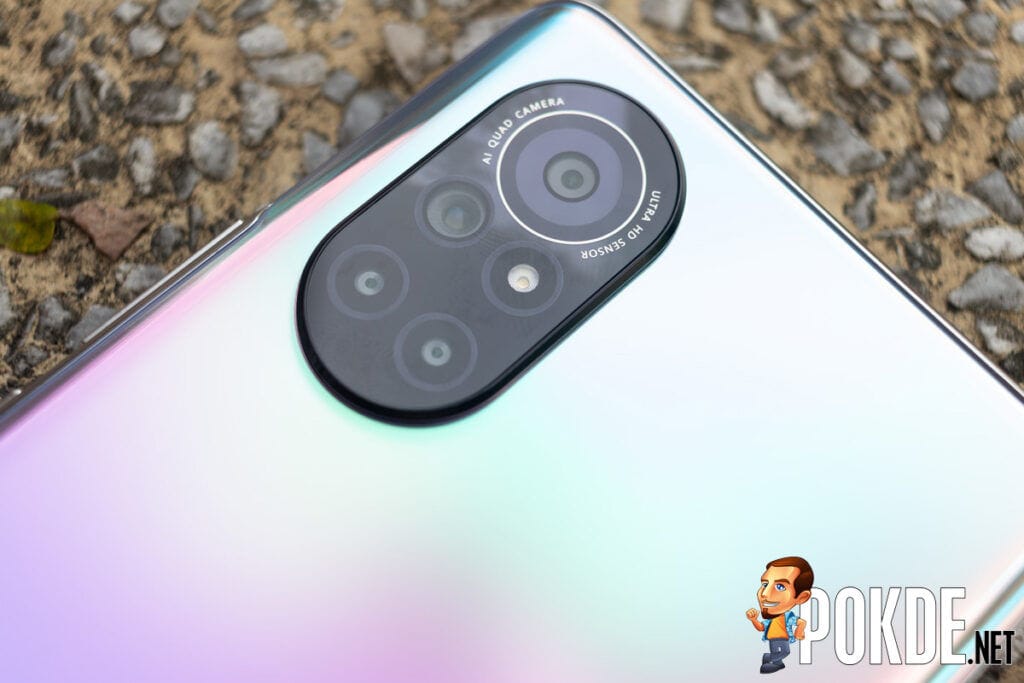

































![[Computex 2024] ASUS Brings ROG Zephyrus G16 GA605 & More AI-Enabled Laptops - 110 [Computex 2024] ASUS Brings ROG Zephyrus G16 GA605 & More AI-Enabled Laptops - 109](https://cdn.pokde.net/wp-content/uploads/2024/06/asusrogzephyrusg16cpx24cover.jpg)


Great review! The HUAWEI nova 8 definitely seems like a stylish option with impressive features. I’m particularly intrigued by the camera performance you mentioned. Can’t wait to hear more about real-world usage!
Great review! I love the design of the HUAWEI nova 8; it really stands out. Curious about the performance in real-world usage—does it hold up for heavy multitasking?
I really enjoyed your review of the HUAWEI nova 8! The design definitely stands out, and I’m curious about the camera performance you mentioned. Would love to hear more about how it handles low-light conditions!